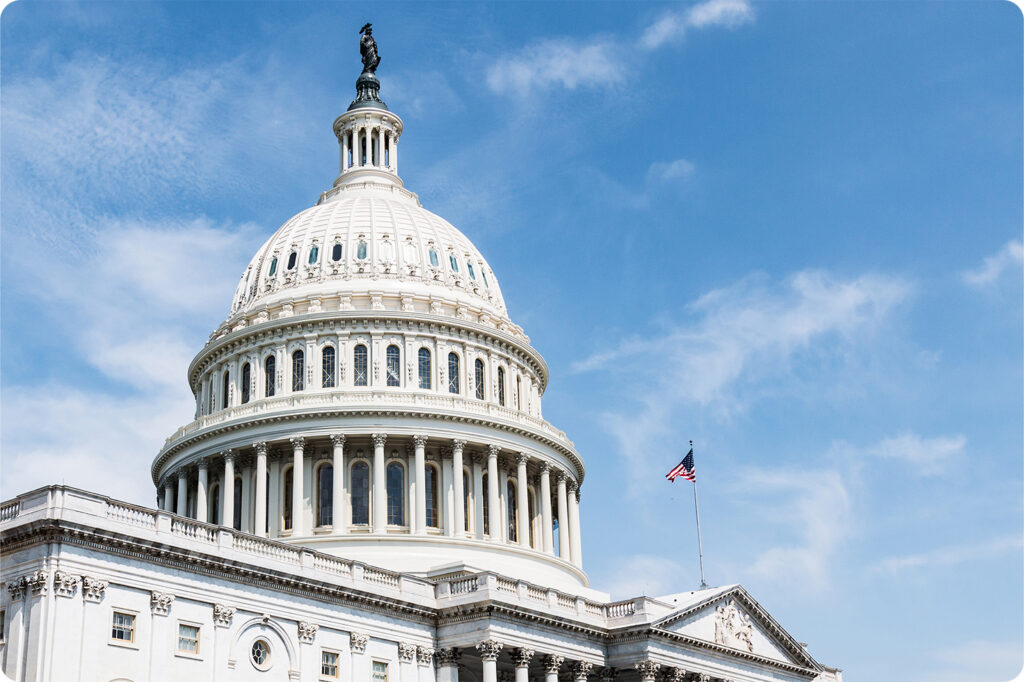The top five climate risk and disclosure stories this week.
Want access to deeper insights and curated climate news? Request a demo of our solution today.
OSFI publishes climate risk rules for Canada’s banks, insurers

Canadian banks and insurers will have to assess their resilience to a 1.5°C warming scenario and disclose climate-related information under new rules issued by the Office of the Superintendent of Financial Institutions (OSFI) on Tuesday.
The rules, called Guideline B-15, set out the regulator’s climate risk expectations for federally regulated financial institutions (FRFIs), including the county’s biggest banks – Bank of Montreal, Canadian Imperial Bank of Commerce, National Bank of Canada, Royal Bank of Canada, Scotiabank, and TD Bank.
B-15 tells institutions to build appropriate climate governance and accountability structures, to incorporate physical and transition risks into their business models and strategies, and to “manage and mitigate” these risks. It also calls on banks and insurers to use climate scenario analysis to estimate the impacts of physical and transition risks to their businesses. In addition, OSFI said FRFIs will have to complete “standardized climate scenario exercises” and report the results to the regulator “on a periodic basis.”
On the disclosure front, B-15 tells firms to produce annual reports aligned with the recommendations of the Task Force on Climate-related Financial Disclosures (TCFD). Banks and insurers will have to disclose their climate governance, strategy, risk management, and metrics and targets – including their absolute Scope 1, 2, and 3 emissions. This means institutions must calculate and report the emissions they finance through their lending, investing, and underwriting portfolios.
On scenario analysis, B-15 instructs firms to describe their resilience to a 1.5°C scenario. In the draft version of B-15, which was published last year, there was no mention of 1.5°C.
The largest Canadian banks and internationally active insurance groups will have to comply with B-15 from fiscal year-end 2024. All other entities will have to conform a year later.
Climate groups welcomed the final guideline and pushed the government to take further action. Julie Segal, senior program manager for climate finance at Environmental Defence Canada, said: “Canada’s financial institutions should cut emissions, not just count them … Without government leadership to align financial flows with climate targets, our economy risks sinking. Prime Minister Trudeau set climate goals, which Canada can only meet if private finance flows in the right direction.”
SEC chief hints at Scope 3 disclosure rollback

In a Monday interview, US Securities and Exchange Commission (SEC) chair Gary Gensler said Scope 3 emissions disclosures aren’t “well developed,” the latest hint that they may be removed from the agency’s forthcoming climate risk reporting rule.
“There are far more companies that are already disclosing Scope 1 and 2,” Gensler told the Council of Institutional Investors. When pressed on whether Scope 3 disclosure requirements would be scrapped, he said he didn’t want to “get ahead of the process,” but added: “I think even when we made the proposal, we took different approaches to the different levels of disclosure.”
The latest comments follow reports out of the Wall Street Journal and Politico that the SEC is considering watering down elements of its flagship climate risk disclosure rule, which is expected to be finalized this April.
On Sunday, Politico reported more than 50 Democratic lawmakers had written to Gensler, demanding he not scrap the part of the rule that would require companies to publish their emissions data. “Not requiring Scope 3 emissions disclosures would enable [fossil fuel companies] and other companies with similar types of emissions patterns to hide the vast majority of their exposure to climate risk from regulators and investors,” the letter reads. “For many companies and sectors, a greenhouse gas inventory that omits Scope 3 would be materially misleading to investors.”
Canada’s sustainable finance council advances green taxonomy

A climate finance blueprint for Canadian financial institutions moved a step closer to reality with the publication of a green taxonomy roadmap.
Canada’s Sustainable Finance Action Council (SFAC) published its Taxonomy Roadmap Report last Friday, which outlines what economic activities could receive a hypothetical “green” or “transition” classification. SFAC, which is made up of professionals from across the Canadian financial sector, was set up in 2021 by Canada’s government to “attract and scale” climate-friendly investment.
According to the roadmap, green activities would include ones that support renewable and clean energy and produce negligible Scope 1, 2, and 3 emissions. Transition activities would cover projects that can show they’re reducing emissions in line with Canada’s 2030 and 2050 climate goals. Certain oil and gas activities would qualify for a transition label if companies show a willingness to phase out Scope 3 emissions. Oil sands companies would also be able to tag carbon capture, utilization and storage (CCUS) projects as transition activities, despite the fact this technology can promote ongoing oil and gas production.
Shift Action for Pension Wealth and Planet Health, a sustainability-focused nonprofit, said the CCUS provisions mean the report “fails to fully live up to its promise of ending greenwash.”
“Putting a transition label on financing marginal emissions reduction technologies for fossil fuels … only serves to delay a Paris-aligned energy transition, compete with the financing and deployment of actual climate solutions (like renewable energy and electrification), and increase stranded asset risks.”
Canada’s Environment Minister Steven Guilbeault told the Global and Mail that the government is digesting the report’s recommendations ahead of a possible endorsement of the taxonomy.
US finance chief sounds alarm on climate risks

US Treasury Secretary Janet Yellen warned that climate change could erode asset values and trigger losses throughout the financial system.
In a Tuesday speech, Yellen said US financial stability could be imperiled by “a delayed and disorderly transition” to net zero and “natural disasters and warming temperatures” caused by a hotter climate.
“These impacts are not hypothetical. They are already playing out,” said Yellen. “In the United States, there’s been at least a five-fold increase in the annual number of billion-dollar disasters over the past five years compared to the 1980s, even after adjusting for inflation. States like California, Florida, and Louisiana recently have seen especially severe storms and wildfires. And recent devastating tornadoes across the South and intensifying storms on the West Coast are reminders of how climate change is accelerating.”
Yellen’s speech marked the first official meeting of the Climate-related Financial Risk Advisory Committee (CFRAC), which was set up last year to advise and inform the Financial Stability Oversight Council (FSOC). The latter is a panel of US regulators that includes the US Treasury, the Securities and Exchange Commission, and the Federal Reserve.
CFRAC is made up of academics, financial experts, and civil society representatives. It collects data on, runs analysis of, and makes recommendations to identify, assess, and mitigate climate-related financial risks in support of FSOC’s financial stability mandate.
US regulator proposes stricter oversight of climate-related derivatives

An official from the US Commodity Futures Trading Commission (CFTC) said the agency should step up its oversight of climate-related financial derivatives to ensure their integrity.
At a Tuesday conference, Christy Romero, one of the five CFTC commissioners, said there could be increased global demand for derivatives products that help companies hedge against climate risks and support their net-zero transitions. This kind of surge would require regulators to keep a close eye on the market in a bid to root out greenwashing and ensure it serves to improve climate resilience.
“A thoughtful approach is to have the Commission increase its oversight by first categorizing products as environmental/climate-related, and then conducting oversight similar to our approach for overseeing digital assets,” said Romero. “Heightened review, targeted law enforcement, and increased market surveillance can ensure the integrity of these markets, so that they are resilient to set backs and contribute to a sustainable future.”
Romero also spoke about the need to increase the public’s understanding of voluntary carbon credits, which some companies are using to offset their emissions. “Voluntary carbon credits should represent one ton of greenhouse gases reduced or removed. However, there are concerns about reliability, about the incentives created, and whether and how carbon credits can be used to meet net zero commitments,” she said.
To address concerns over credits, Romero proposed that the CFTC scrutinize them more closely and require carbon credit exchanges to increase confidence in the products they allow to be bought and sold.

